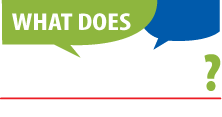Phrases starting with the letter: A B C D E F G H I J K L M N O P Q R S T U V W X Y Z
Definition of: wake
(wāk) v. woke or waked, waked (Dial. wok·en), wak·ing v.i.
1. To be roused from sleep or slumber.
2. To be or remain awake.
3. To become active or alert after being inactive or dormant.
4. Dial. To keep watch or guard at night; especially, to hold a wake (def. 1).
5. Obs. To feast or revel late into the night.
—v.t.
6. To rouse from sleep or slumber; awake.
7. To rouse or stir up; excite: to wake evil passions.
8. Dial. To keep a vigil over; especially, to hold a wake over. See synonyms under STIR1.
—noun
1. A watch over the body of a dead person through the night, just before the burial, by the relatives and friends: common among the Irish, and often accompanied by conviviality.
2. Formerly, in the Anglican Church, a dedication festival or anniversary celebration of a parish church, preceded by a night vigil in the church.
3. The act of refraining from sleep, especially on a festive or solemn occasion.
4. Obs. The act of waking, or the state of being awake; vigil. [Fusion of OE wacan awake and wacian be awake. Akin to WATCH.]♦ awake, awaken, wake, waken These four verbs, so similar in basic meaning, offer a confusing variety of choices in actual use. In the imperative, Wake up! is the familiar and homely form; the other three would be felt as poetic. Awake and wake have checkered form–histories. In the King James Bible, Shakespeare, and Milton, only the inflected forms in –ed are found. But awake and wake each had a strong verb as well as a weak one in its ancestry, and in the late seventeenth century the alternative inflected forms awoke, awoken, and woke, woken emerged, reinforced by analogy with break, broke, broken, etc. These alternative forms have led to uncertainty and confusion in usage. For the past tense of awake, awoke is usual; awaked tends to be felt as Biblical. Awoke as the past participle is rare, and awaked seems awkward to some; what happens in practice is a borrowing of the past participle from awaken. For wake, the more usual past is woke (or woke up); waked in the intransitive is also standard, but in the transitive sense it is dialectal, referring to holding a vigil or wake: They waked old Tim on Thursday night. Real uncertainty arises over the form to choose for the past participle of wake. In British (or dialectal American) usage, woken, or, for the phrasal verb, woken up is used: He had woken (or woken up) early. American usage here employs waked (up), or if this is felt as awkward, particularly in the passive, the past participle is borrowed from waken or awaken: What woke her? She was awakened (or wakened) by the noise of the crash.

Comment about this word, ask questions, or add new information about this topic: